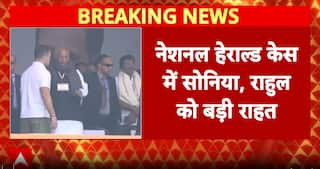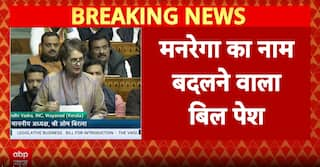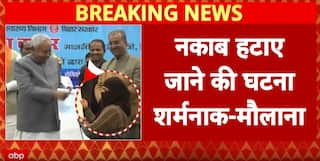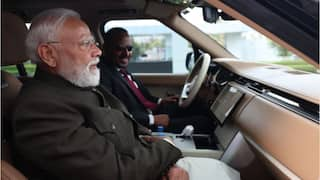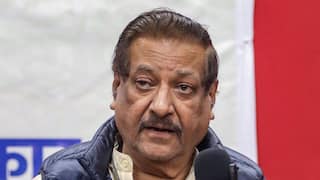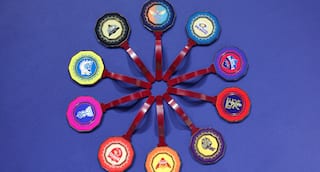World Music Day 2023: Classical Music Experts Talk About The Art Form And Discuss Healing Power Of Ragas
ABP Live spoke to experts who spoke about the impact of classical music over the present generation, the healing power of ragas and also the diversification of Indian Classical music.

New Delhi: World Music Day is celebrated every year on June 21 to illustrate the role that music plays in our lives. It also functions as a platform for amateur and professional musicians to play in public places. Additionally, the day also celebrates the global power of songs and rhythms in unifying people beyond borders, cultures, ethnicity, and languages.
Speaking about Indian classical music, the origin dates back to the Vedic times. During the ancient times, two musical genres prevailed- Gandharva and Gana. The Gandharva was the formal composed music performed during ceremonies and was considered celestial and divine, while the Gana was the informal and improvised music performed for entertainment performances. It took a long time for Indian music to become what it is today. Due to multiple invasions over the time, Indian music became acquainted with Persian music, resulting in the formation of two types of Indian Classical Music- Hindustani and Carnatic. Love, humor, pathos, anger, heroism, terror, disgust, wonder and serenity are the nava rasas or nine basic emotions which are fundamental to all Indian aesthetics- Hindustani or Carnatic.
In this regard, ABP Live spoke to Artitra Chakraborty, Akaash Dasgupta and Senior Music Artiste Suvrakanti Chatterjee, to discuss the impact of classical music over the present generation, talk about the healing power of ragas and also get insights into the diversification of Indian Classical music.
Impact Of Indian Classical Music Over The Present Generation:
Aritra Chakraborty said, "Our taste of music has evolved over the years and now we are more inclined towards the shortcuts and easier techniques. The problem is that classical music has no shortcuts- the only way to progress through it is by regular practice and a proper 'Talim'. So, people nowadays when they listen to classical music are either getting spellbound or are becoming afraid as they are lacking that mentality and personality to give the required effort."
"But, if this can be ingrained since childhood, that one needs to put in honest efforts and be disciplined enough to acquire the skills in order to learn classical music, then probably this art form will also be able to reach the present and the future generation to a much greater extent. With the help of technological advancement and AI, people are opting for shortcuts, but one must remember that there can be no shortcut in the making of a good artiste.", he further continued to say.
"Most of the compositions we like today or which come into the limelight are composed by musicians who have studied Indian Classical Music. Flavours of different ragas are occasionally found in many modern compositions. Though they don't always maintain the purity of the ragas but they do not fail to make an impact on the hearts of it's listeners.", said Akaash Dasgupta.
Speaking about the rise in 'Band Culture', Suvrakanti Chatterjee said, "In addition to that, there is an upsurge in the 'Band culture' as well, which today's generation is enjoying a lot. It is important to note that along with all this, it is the responsibility of today's generation to maintain the purity of classical music and the ragas as well."
Impact Of Social Media On The Practice Of Indian Classical Music:
Speaking about the role social media plays in today's musical culture, Akaash said, "It has become very easy for students to listen to maestros who have performed way back in the past or people who perform in other parts of the country or world through the help of social media. One can learn a lot if they have the time, patience and proper guidance. Moreover, music teachers from all over the country share their thoughts, opinions and teachings on various platforms which are accessible by everyone help the students to clarify doubts or to discover new horizons of Indian Classical Music."
Diversification of Indian Classical music:
Indian Classical Music has evolved over time like any other genre of music. While some fight to preserve it's purity, others experiment and seek new paths.
In this regard Aritra said, "Classical music is divided into multiple gharanas spanning over different regions across the country. Earlier it was seen that artistes belonging to a particular gharana sang in the style of their gharana only, but today this has been diversified a lot. Today, classical music is used almost everywhere- in movies, fusion and it is a part of other experiments as well. But, no matter how diverse it becomes, one must always remember the roots otherwise things might get messed up."
Healing Power Of The Ragas:
Nowadays, listening to classical music is being recommended in India as well as in certain parts of the world to help people heal and a lot of research is being done on the healing power of music.
According to Aritra, "Many a times it has been observed that the ragas have helped people heal, but it has not yet been scientifically proven due to the lack of proper technology. To be honest, music therapy is the next big thing. If people can be cured with the help of music, there can be no greater boon than this."
Adding to this, Suvrakanti Chatterjee said, "From patients suffering from Parkinson's Disease to heart patients, classical music is helping all to recover. The patient is being kept in a room and then intrumental versions of classical music is played to generate a pleasant aura. The ragas differ from Malkauns, to Yog to Bageshree as per the requirement, as all the ragas have different effects on our body. Thus, nature, humans and music are connected to each other and research is being carried out to prove this healing power that music has."
Future of Indian Classical Music Few Years Down The Line:
In this regard, Akaash said, "Indian Classical Music is in very good hands and many distinguished Gurus have taken up this responsibility to pass on the tradition as well as possible. New age musicians are equally promising and with the evolution of technology advancement in this field is much more easier today than it was decades ago. More students are taking up this subject and they are very dedicated and hardworking."










